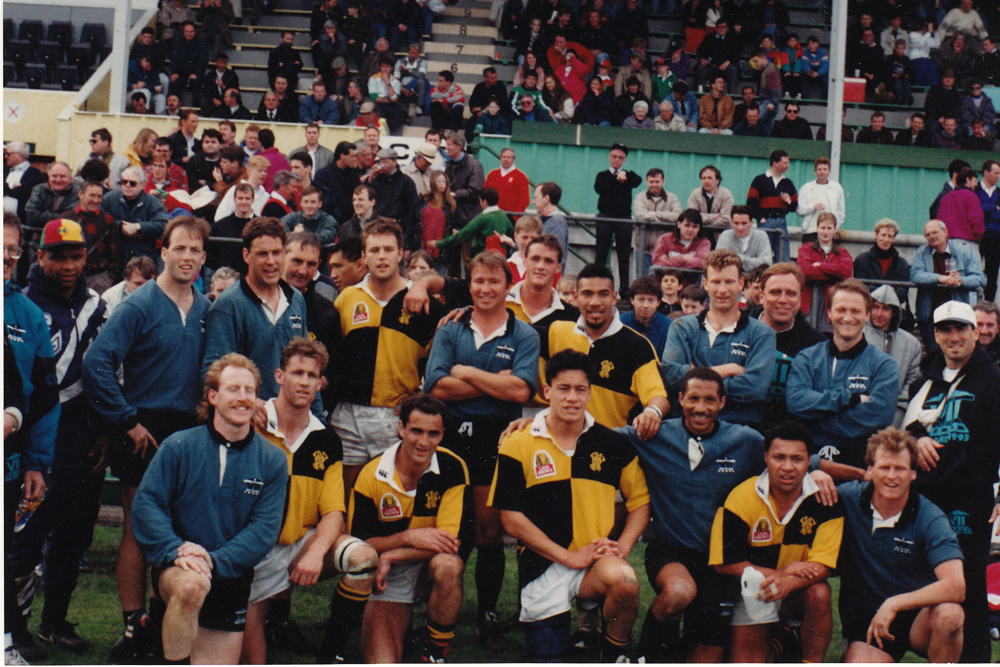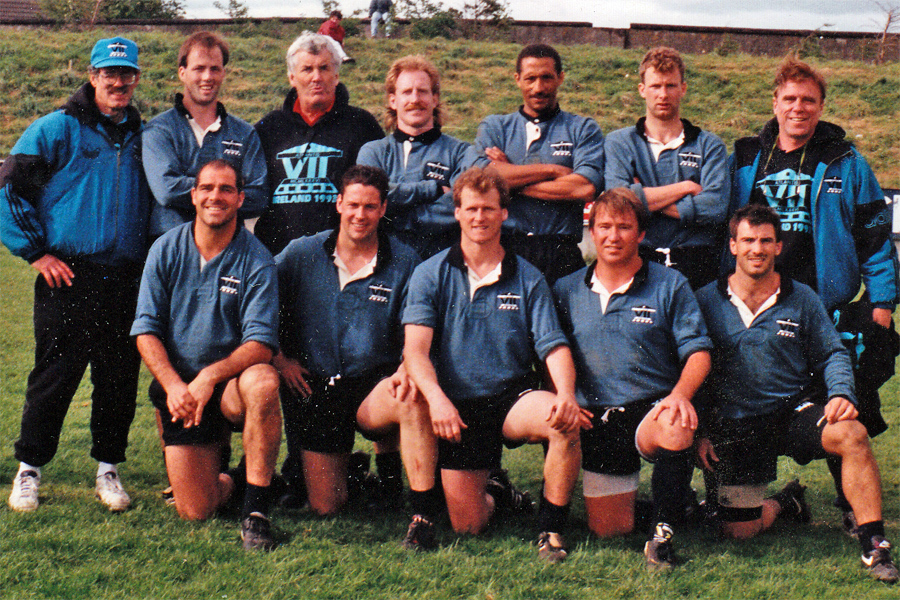
Atlantis and Wellington (NZ) following our match in Belfast (the 3rd on the tour, resulting in 8 tries each)
Top, L to R: Emil Signes, Kurt Seecharan, Marty O'Connor, John Flamish, unknown, Wellington, Grant Butterworth, 2 Wellington, Al Dekin, Bill Gardner, Pavel Berzin, Andy Dujakovich
Bottom, L to R: John Redmond, 3 Wellington, Rory Lewis, Wellington, Dave Priestas
